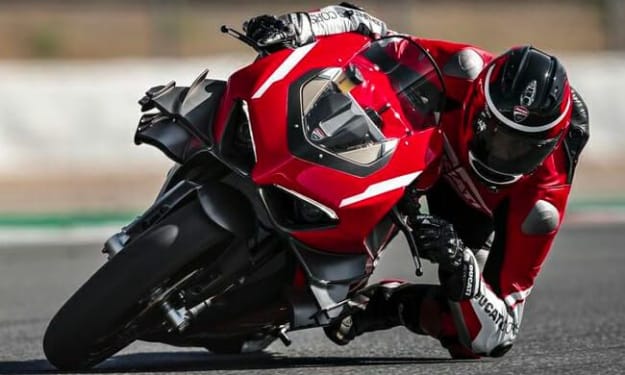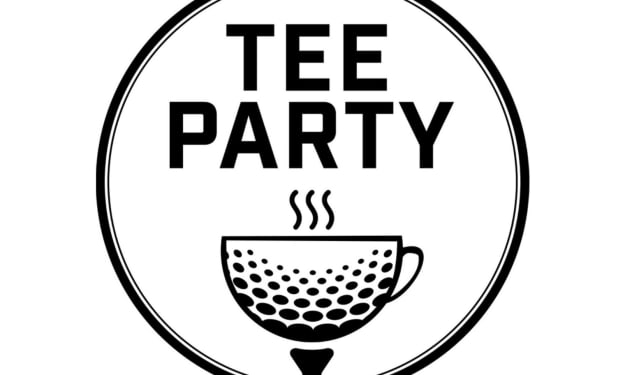Call My Name
The Last Family Trip On Cape Cod

As a kid, I never went camping. Sure, there were one or two backyard sleepovers with other boys in my church, and I’d once spent an unfortunate evening with my father and Brian in a neighbor’s leaky cabin—my dad had been fighting with my mom again and sold the overnighter to us as a “bushwhacking adventure.” But really, the closest I’d ever come to truly roughing it was watching Woody Woodpecker torment lumberjacks on my black and white television.
So I was shocked when my father announced one July that the family would spend the week camping on Cape Cod. On the way, we’d take a ferry over to Martha’s Vineyard for the day to go biking. Sleeping in a tent under the stars sounded alright, but I was most excited about the ferry: I’d never been on a boat on the ocean before and was absolutely thrilled.
* * *
When we arrived to catch the ferry, I was deflated to learn we weren’t riding on a pirate ship. In fact, the boat was downright ugly and shaped like a Styrofoam beach cooler. Where are the masts, I thought. Couldn’t they at least hang a plank off the side to threaten us?
Following a sterile voyage filled with nothing but endless gray folds of water and a handful of trembling seagulls, we finally docked and were all ushered down a gangway like doomed farm animals. I was overcome by the sheer number of people vacating the boat, pushing this way and that in their tennis shorts and reeking of Coppertone suntan lotion. On land, every store was selling something embroidered with an anchor, or else they displayed rows of driftwood lamps and lobster trap coffee tables. I couldn’t see the beach and the place resembled any old town back in New Hampshire.
What a jip.
My father eventually secured bicycles for us and said we would bike “the entire island”; since I had no idea how big Martha’s Vineyard was I figured, well, there goes the summer.
Before we set out, my dad coaxed Brian and me over to a small dock, excitedly proclaiming that it was the very same spot that Sheriff Brody and Hooper dissected the tiger shark in the movie “Jaws”.
We looked down at the splintered planks waiting for something to happen. I hoped maybe I’d catch a glimpse of the bent license plate they pulled out of the shark’s stomach; Brian reasoned it was probably in a trashcan nearby. I asked how they managed to get all the guts washed off the wood.
“Probably used a hose,” my dad said.
* * *
Our ride was long and flat and hot. The people who drove past us in their air conditioned cars must have pitied us, or worse, laughed at an ill-prepared father leading his sweltering troupe on a bike ride to hell. Each time we stopped to take a break, (did we drink any water? I can’t remember), my mother looked worse and worse, her face growing noticeably redder, her voice getting weaker.
When we arrived in the next town, we made a beeline for the first restaurant we found, disposing our bikes in a pile as if dumping medical waste. Huddled together around a dark, wood-paneled booth, we luxuriated in the cool air. My father ordered everyone jumbo iced teas. They were unsweetened, so Brian and I emptied packet after packet of sugar into the cups; the tea crunched with every sip.
“I just can’t catch my breath, George,” my mom said to my father. “I feel really sick.”
“Drink your iced tea,” he offered. “That will help. Come on, drink up.”
Each time he told her to drink, I drank mine. None of us really talked, or joked. And no one mentioned the scenery of the island, as that would have only reminded us how far away from home we really were.
Back on the ferry I grew increasingly seasick. Brian and I played cards, Crazy Eights and War, but I could feel my stomach rolling in tandem with the ugly, cavernous ship. My mother seemed a little better, and she closed her eyes and rested her head on my father’s shoulder. I could hear him humming softly into her ear.
* * *
When we backed up into our campsite, Brian and I were near busting with excitement. And once we piled out of the car and stretched our legs, I noticed the air had this silky aroma of wood smoke and pine trees, but bigger, cleaner.
My mom and dad pitched two tents as best they could: one for them and the other for us. My dad squeezed lighter fluid onto a pile of sticks and got a fire going. We noisily recounted the day over a dinner of hotdogs and beans.
Afterward, Brian grabbed a flashlight and we both wandered over to the lake. Several kids our age were hanging around the shore and laughing, throwing rocks in the air at bats or chucking branches into the blackened water. Two or three teenagers sat idling in a beige Rambler, windows down, Cheap Trick’s “I Want You To Want Me” booming from their stereo. Those boys scared me.
But then I met Nathan.
Nathan had straight sandy-red hair and was from Southie. Every year, he said, his parents took him and his sister to this campground.
“You like coming here?” I asked.
“Sure, I guess so. Can’t complain.”
“Yeah, that’s good.”
“Boston’s too hot in the summer,” he said.
“Do you hear a lot of sirens at night back home,” I asked, curious, as cities fascinated me.
“I guess so.”
“I don’t.” I countered. “We live way up in the boonies in New Hampshire.”
“Yeah? So why’d you come here?” Nathan asked. And I suddenly realized I had no idea at all.
* * *
During the day, our parents took us places normal families took their normal kids on vacation. We went to a little amusement park with its clunky, dubious rides and suspiciously hungover brake operators, and we also spent one afternoon at Plymouth Rock devouring peppermint stick ice cream cones and running the beach at low tide. The salty pinch of air made me feel elated. For once, I was like the kids I saw on TV, the ones who were so loved they didn’t need to hear it repeated over and over to them like an apology.
By the third night, my parents’ bickering began seeping back into our routine, so I spent my evenings with Nathan. We shared everything, even our own personal horror stories: Nathan and the vicious teasing he received for his red hair, me and my abusive third grade teacher from the year before. Sister Sally had finally crossed the line when she cold-cocked me in the face with a wooden paddle because I’d broken a plastic toy I’d won for reading the most books in class. That was not the last time I’d be knocked unconscious, but it certainly was the most upsetting.
Nathan loved that story, and I felt emboldened enough to move our friendship to the next level, so I told him about my church. New Christian Fellowship was Pentecostal, and every Sunday my family and I witnessed at least one demonic possession and several occurrences of church leaders speaking in tongues. Our pastor believed one of the most important tasks we could perform as Christians was the recruitment of others, and with Nathan I suddenly understood I found my chance. I spoke casually about my church, and just left the stuff out about the possessions: I didn’t want to encourage any demons if they happened to be eavesdropping.
“Jesus loves you,” I finally blurted. “Even though you don’t know it. He loves everybody.”
“What? Why?” Nathan asked, waving away a firefly from his face.
“Because he just does.”
“Oh.”
“And if you ask the Lord into your heart and accept him as your savior, when you die, you will be in Heaven with him, like, forever.”
“Yeah?”
“Yeah.” I paused briefly. “Will you accept Jesus into your heart? Will you do that with me?” I could feel love spreading all throughout my body.
Nathan accepted my offer and let me pray for him. I felt so proud of myself. And with both of us standing calmly there next to that lake, I genuinely believed that I had just done something packed with monumental goodness.
But really, what did I know.
Like the leaders in my church, and even my parents, I had learned how to make quite an overture, but then didn’t know how to make any of it real: You Are Healed, You Are Saved, Our Family Will Be Just Fine.
Afterward, Nathan and I said goodnight and retreated to our separate campsites. The next day my family packed up and headed out, and I never saw Nathan again.
* * *
On our way back home, we spent the night at my grandfather’s. I had become badly sunburned, and upon meeting me my aunt’s new boyfriend he shook my hand and slapped me on the back several times. My skin exploded with pain. My eyes watered and I caught my breath. I excused myself and went out back to the woods so I could cry.
To get my mind off the pain, I thought about Nathan and that we were supposed to meet. I thought about my family, and I wondered what life would be like living with only one parent, something that day my mother said was going to happen if my father kept up with his quote-unquote bullshit. And then I thought about my sunburn, how painful it had become, and wished I knew how to make it all go away.
My mother started calling for me from the deck, and through the trees I could see her standing behind the waist-high railing about a hundred yards away. She was looking right at me, but couldn’t see me. And for a brief moment I liked that I was hidden but could see her so clearly in the setting light. I stood like that for a few seconds longer and felt invincible, or the very least immune to an adult world colored by disappointment and change. Then my mother raised her hands to her mouth and called my name again.
END
About the Creator
Christopher Locke
Chris is a writer living in the Adirondacks. Latest travel book ORDINARY GODS (Salmon, Ireland, 2017), latest fiction 25 TRUMBULLS ROAD (Black Lawrence Press, 2020), latest collection of poetry MUSIC FOR GHOSTS (NYQ Books, 2021)






Comments
There are no comments for this story
Be the first to respond and start the conversation.